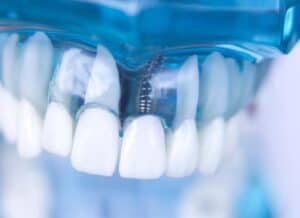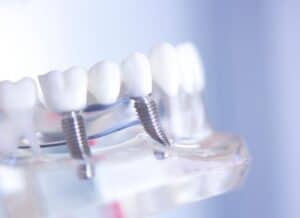In the realm of modern dentistry, dental implants stand as a beacon of hope for individuals seeking to restore their smiles and reclaim their confidence. These remarkable prosthetic devices offer a permanent solution for replacing missing teeth, providing patients with a durable, functional, and aesthetically pleasing alternative to traditional dentures or bridges. However, one question that often arises among patients considering dental implants is, “How long do they last?”
In this comprehensive guide, we delve into the lifespan of dental implants, unveiling the factors that influence their longevity and empowering you to make informed decisions about your oral health and smile restoration journey.
Understanding the Foundation: The Anatomy of Dental Implants
Before delving into the lifespan of dental implants, it’s essential to understand their fundamental structure and composition. Dental implants consist of three primary components:
- Implant Fixture: This is the titanium post that is surgically implanted into the jawbone. It serves as the artificial tooth root, providing a stable foundation for the replacement tooth or prosthetic.
- Abutment: The abutment is a connector piece that attaches to the implant fixture and protrudes above the gum line. It serves as the anchor for the replacement tooth or dental crown.
- Prosthetic Tooth: This is the artificial tooth or crown that is attached to the abutment. It is custom-designed to match the color, shape, and size of the patient’s natural teeth, ensuring a seamless blend with the existing smile.
Factors Influencing Longevity: What Determines the Lifespan of Dental Implants?
Several factors influence the longevity of dental implants, including:
- Bone Density and Quality: Adequate bone density and quality are essential for successful implant placement and osseointegration—the process by which the implant fuses with the jawbone. Patients with sufficient bone volume are more likely to experience long-term implant success.
- Oral Hygiene Habits: Proper oral hygiene is critical for maintaining the health and longevity of dental implants. Regular brushing, flossing, and professional cleanings help prevent plaque buildup and gum disease, which can compromise implant stability and longevity.
- Overall Health: Systemic health conditions such as diabetes, autoimmune disorders, and smoking can impact the body’s ability to heal and may increase the risk of implant failure. Patients with well-controlled health conditions and healthy lifestyle habits tend to experience better implant outcomes.
Average Lifespan of Dental Implants: What Research Reveals
While individual experiences may vary, studies have shown that dental implants have an impressive success rate and can last a lifetime with proper care and maintenance. According to research published in the International Journal of Oral and Maxillofacial Implants, dental implants have a long-term survival rate of approximately 95% over a ten-year period, with many implants lasting significantly longer.
Tips for Prolonging the Lifespan of Dental Implants
To ensure the longevity of your dental implants, consider the following tips:
- Commit to Excellent Oral Hygiene: Brush and floss regularly, and schedule routine dental check-ups and cleanings to maintain the health of your gums and surrounding teeth.
- Avoid Tobacco Products: Smoking and tobacco use can increase the risk of implant failure and compromise healing. If you smoke, consider quitting or seeking support to help you quit.
- Protect Your Implants: Avoid biting down on hard objects or using your teeth as tools, as this can put undue stress on your implants and prosthetic teeth.
- Follow Post-Operative Instructions: After implant placement surgery, follow your oral surgeon’s post-operative instructions carefully to promote proper healing and osseointegration.
- Maintain Regular Visits to TVOS: Schedule regular follow-up appointments with your Tennessee Valley oral surgeon to monitor the health and stability of your implants and address any concerns promptly.
Investing in a Lifetime of Smiles
In conclusion, dental implants offer a durable and long-lasting solution for restoring missing teeth and revitalizing smiles. While individual experiences may vary, with proper care and maintenance, dental implants can provide a lifetime of function, aesthetics, and confidence. By understanding the factors that influence implant longevity and adopting healthy oral hygiene habits, you can maximize the lifespan of your dental implants and enjoy the benefits of a beautiful and functional smile for years to come. At Tennessee Valley Oral Surgery, our team is committed to helping you achieve lasting oral health and happiness through personalized care, advanced technology, and unwavering expertise.
Contact us today to schedule your consultation and allow us to show you all of the benefits of dental implants.

Schedule an Appointment Today
Are you a patient in the Knoxville, Lenoir City or Maryville, TN area needing oral surgery?
Have More Questions?
Check out our frequently asked questions to get more answers about your oral surgery procedure.















